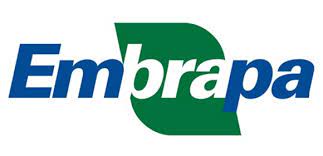HEALTH EDUCATION ON ADHERENCE TO SELF-CARE BEHAVIORS IN HYPERTENSIVE INDIVIDUALS: AN INTEGRATIVE REVIEW
DOI:
https://doi.org/10.47820/recima21.v4i8.3742Keywords:
Health education, hypertension , self-careAbstract
Objective: to describe the impact of health education on the lives of hypertensive patients and its impact on adherence to self-care practices. Methods: This is an integrative literature review study, with data collection from April to June 2023, in the MEDLINE/PubMed and BioMed Central (BMC) databases. Results: 11 articles were selected and made up the final sample. From the analysis of the studies, two categories emerged for discussion: methods of transmitting health education and adherence to self-care practices as a consequence of health education. The results showed that health education and self-care are widely discussed topics and their effectiveness has been widely proven in the scientific literature. However, low levels of knowledge, education and self-care habits are still observed among hypertensive patients in different countries. Conclusion: Therefore, continued efforts are needed to strengthen health education strategies aimed at raising awareness of hypertension and promoting adherence to self-care practices. This can be done through education programs aimed at patients, families and health professionals, as well as the availability of accessible and quality educational resources.
Downloads
References
IBGE. Sistema IBGE de Recuperação Automática – SIDRA. Projeção da população: proporção de pessoas, por grupo de idade para o período de 2000-2060: revisão 2020. Rio de Janeiro: IBGE, 2018. Disponível em: https://sidra.ibge.gov.br/tabela/7365#/n1/all/v/all/p/all/c58/3302/c1933/49039,49076/d/v10615%202/l/v,p+c58,t+c1933/resultado
DA SILVA BARRETO, Mayckel; CARREIRA, Lígia; MARCON, Sonia Silva. Envelhecimento populacional e doenças crônicas: Reflexões sobre os desafios para o Sistema de Saúde Pública. Revista Kairós-Gerontologia, v. 18, n. 1, p. 325-339, 2015. Disponível em: https://pesquisa.bvsalud.org/portal/resource/pt/biblio-967796
BRASIL. Ministério da Saúde. Secretaria de vigilância em saúde. VIGITEL 2021: Vigilância de Fatores de Risco e proteção para doenças Crônicas em Inquérito Telefônico. Brasília: Ministério da Saúde; 2022. Disponível em: https://www.gov.br/saude/pt-br/centrais-de-conteudo/publicacoes/svsa/vigitel/vigitel-brasil-2021-estimativas-sobre-frequencia-e-distribuicao-sociodemografica-de-fatores-de-risco-e-protecao-para-doencas-cronicas/view
BRASIL. Ministério da Saúde. Relatório aponta que número de adultos com hipertensão aumentou 3,7% em 15 anos no Brasil. Publicada em 17 de maio de 2022. Acesso em 6 de abril de 2023. Disponível em: https://www.gov.br/saude/pt-br/assuntos/noticias/2022/maio/relatorio-aponta-que-numero-de-adultos-com-hipertensao-aumentou-3-7-em-15-anos-no-brasil.
BARROSO, Weimar Kunz Sebba et al. Diretrizes brasileiras de hipertensão arterial–2020. Arquivos brasileiros de cardiologia, v. 116, p. 516-658, 2021. Disponível em: https://abccardiol.org/article/diretrizes-brasileiras-de-hipertensao-arterial-2020/
NILSON, Eduardo Augusto Fernandes et al. Custos atribuíveis a obesidade, hipertensão e diabetes no Sistema Único de Saúde, Brasil, 2018. Revista Panamericana de Salud Pública, v. 44, p. e32, 2020. Disponível em: https://iris.paho.org/handle/10665.2/51945
BRASIL. Ministério da Saúde. Secretaria de Vigilância em Saúde. Departamento de Análise de Situação de Saúde. Plano de Ações Estratégicas para o Enfrentamento das Doenças Crônicas Não Transmissíveis (DCNT) no Brasil 2021-2030. Brasília: Ministério da Saúde; 2021. Disponível em: https://www.gov.br/saude/pt-br/centrais-de-conteudo/publicacoes/svsa/doencas-cronicas-nao-transmissiveis-dcnt/09-plano-de-dant-2022_2030.pdf
VASCONCELOS, Maristela Inês Osawa et al. Educação em saúde na atenção básica: uma análise das ações com hipertensos. Revista de APS, v. 20, n. 2, 2017. Disponível em: https://periodicos.ufjf.br/index.php/aps/article/view/15943
EINLOFT, Fabiana Santini; BAYER, Valéria Maria Limberger; RIES, Edi Franciele. Estratégias de educação em saúde para conscientização sobre a Hipertensão Arterial: uma revisão sistemática. Saúde (Santa Maria), 2020. Disponível em: https://periodicos.ufsm.br/revistasaude/article/view/44174
MENDES, Karina Dal Sasso; SILVEIRA, R. C. C. P.; GALVÃO, Cristina Maria. Método de pesquisa para a incorporação de evidências na saúde e na enfermagem. Rev. Integrativa, v. 17, n. 4, p. 758-64, 2008. Disponível em: https://www.scielo.br/j/tce/a/XzFkq6tjWs4wHNqNjKJLkXQ/abstract/?lang=pt
DARRAT, M. et al. Outcomes from a community-based hypertension educational programme: the West of Ireland Hypertension study. Irish Journal of Medical Science (1971-), v. 187, p. 675-682, 2018. Disponível em: https://pubmed.ncbi.nlm.nih.gov/29110187/
GEBREMICHAEL, Gebrewahd Bezabh; BERHE, Kalayou Kidanu; ZEMICHAEL, Teklewoini Mariye. Uncontrolled hypertension and associated factors among adult hypertensive patients in Ayder comprehensive specialized hospital, Tigray, Ethiopia, 2018. BMC cardiovascular disorders, v. 19, p. 1-10, 2019. Disponível em: https://bmccardiovascdisord.biomedcentral.com/articles/10.1186/s12872-019-1091-6
OZOEMENA, Eyuche L. et al. Effects of a health education intervention on hypertension-related knowledge, prevention and self-care practices in Nigerian retirees: a quasi-experimental study. Archives of Public Health, v. 77, p. 1-16, 2019. Disponível em: https://pubmed.ncbi.nlm.nih.gov/31143446/
WU, Meng-Ping et al. Health-promotion interventions enhance and maintain self-efficacy for adults at cardiometabolic risk: A randomized controlled trial. Archives of gerontology and geriatrics, v. 82, p. 61-66, 2019. Disponível em: https://pubmed.ncbi.nlm.nih.gov/30716679/
ADEME, Sewunet; AGA, Fekadu; GELA, Debela. Hypertension self-care practice and associated factors among patients in public health facilities of Dessie town, Ethiopia. BMC health services research, v. 19, p. 1-9, 2019. Disponível em: https://pubmed.ncbi.nlm.nih.gov/30665405/
KETATA, N. et al. Prevalence and predictors of hypertension self-care practice in primary health-care facilities in Southern Tunisia. JMV-Journal de Médecine Vasculaire, v. 46, n. 2, p. 72-79, 2021. Disponível em: https://pubmed.ncbi.nlm.nih.gov/33752849/
NAEEMI, Leila et al. The effect of educational intervention on self-care behavior in hypertensive older people: Applying the health belief model. Journal of Education and Health Promotion, v. 11, 2022. Disponível em: https://pubmed.ncbi.nlm.nih.gov/36824083/
AFSHARI, Maryam et al. Examining the Effect of the Training Program by Using the Health Belief Model in Performing Self-Care Behaviors of Rural Patients Having High Blood Pressure. Community Health Equity Research & Policy, v. 43, n. 1, p. 21-29, 2022. Disponível em: https://pubmed.ncbi.nlm.nih.gov/33781145/
ZAREBAN, Iraj et al. High blood pressure self-care among hypertensive patients in Iran: a theory-driven study. journal of human hypertension, v. 36, n. 5, p. 445-452, 2022. Disponível em: https://pubmed.ncbi.nlm.nih.gov/33077805/
WU, Vivien Xi et al. Development of a community-based e-health program for older adults with chronic diseases: Pilot pre-post study. JMIR aging, v. 5, n. 1, p. e33118, 2022. Disponível em: https://pubmed.ncbi.nlm.nih.gov/35037882/
KHANI JEIHOONI, Ali et al. Effect of educational intervention based on PRECEDE model on lifestyle modification, self-management behaviors, and hypertension in diabetic patients. BMC endocrine disorders, v. 23, n. 1, p. 6, 2023. Disponível em: https://bmcendocrdisord.biomedcentral.com/articles/10.1186/s12902-023-01264-y
BENETOS, Athanase; PETROVIC, Mirko; STRANDBERG, Timo. Hypertension management in older and frail older patients. Circulation Research, v. 124, n. 7, p. 1045-1060, 2019. Disponível em: https://www.ahajournals.org/doi/10.1161/CIRCRESAHA.118.313236
PARRA-GÓMEZ, Laura Alejandra et al. Barreras para el conocimiento, el tratamiento y el control de la hipertensión arterial en América Latina: una revisión de alcance. Revista Panamericana de Salud Pública, v. 47, p. e26, 2023. Disponível em: https://iris.paho.org/handle/10665.2/57119
RAGHUPATHI, Viju; RAGHUPATHI, Wullianallur. The influence of education on health: an empirical assessment of OECD countries for the period 1995–2015. Archives of Public Health, v. 78, n. 1, p. 1-18, 2020. Disponível em: https://archpublichealth.biomedcentral.com/articles/10.1186/s13690-020-00402-5
CELUPPI, Ianka Cristina et al. Uma análise sobre o desenvolvimento de tecnologias digitais em saúde para o enfrentamento da COVID-19 no Brasil e no mundo. Cadernos de Saúde Pública, v. 37, p. e00243220, 2021. Disponível em: https://www.scielo.br/j/csp/a/rvdKVpTJq8PqTk5MgTYTz3x/
JAHAN, Yasmin et al. Awareness development and usage of mobile health technology among individuals with hypertension in a rural community of Bangladesh: randomized controlled trial. Journal of Medical Internet Research, v. 22, n. 12, p. e19137, 2020. Disponível em: https://pubmed.ncbi.nlm.nih.gov/33284129/
CITONI, Barbara et al. Home blood pressure and telemedicine: a modern approach for managing hypertension during and after COVID-19 pandemic. High Blood Pressure & Cardiovascular Prevention, v. 29, n. 1, p. 1-14, 2022. Disponível em: https://pubmed.ncbi.nlm.nih.gov/34855154/
VILME, Helene et al. Using telehealth to Disseminate primary, secondary, and tertiary CVD interventions to rural populations. Current hypertension reports, v. 21, p. 1-13, 2019. Disponível em: https://pubmed.ncbi.nlm.nih.gov/31701257/
SANTOS, Camila Tahis. Tecnologias voltadas paraeducação em saúde: o que temos para a saúde dos idosos? Anais do Seminário Tecnologias Aplicadas a Educação e Saúde, 2015. Disponível em: https://www.revistas.uneb.br/index.php/staes/article/view/1615
MOREIRA, Ana Karine de Figueiredo; SANTOS, Zélia Maria de Sousa Araújo; CAETANO, Joselany Afio. Aplicação do modelo de crenças em saúde na adesão do trabalhador hipertenso ao tratamento. Physis: Revista de Saúde Coletiva, v. 19, p. 989-1006, 2009. Disponível em: https://www.scielo.br/j/physis/a/V4y4wNzbs6fy9tvQ5rSJf8J/abstract/?lang=pt
Downloads
Published
How to Cite
License
Copyright (c) 2023 RECIMA21 - Revista Científica Multidisciplinar - ISSN 2675-6218

This work is licensed under a Creative Commons Attribution 4.0 International License.
Os direitos autorais dos artigos/resenhas/TCCs publicados pertecem à revista RECIMA21, e seguem o padrão Creative Commons (CC BY 4.0), permitindo a cópia ou reprodução, desde que cite a fonte e respeite os direitos dos autores e contenham menção aos mesmos nos créditos. Toda e qualquer obra publicada na revista, seu conteúdo é de responsabilidade dos autores, cabendo a RECIMA21 apenas ser o veículo de divulgação, seguindo os padrões nacionais e internacionais de publicação.

 Clique para ver detalhes
Clique para ver detalhes 











